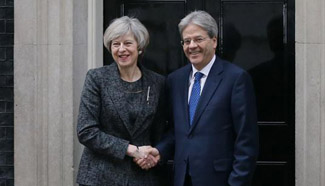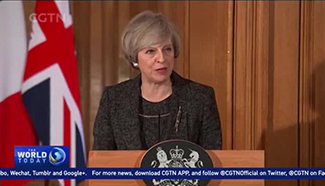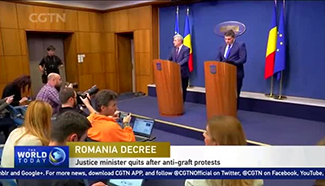by Victoria Arguello
CARACAS, Feb. 9 (Xinhua) -- U.S. President Donald Trump's openly protectionist policies represent an "opportunity" for Latin America to diversify its trade ties, said Venezuelan economist Luis Enrique Gavazut.
Trump's stance represents an opportunity for regional countries "to look inward," instead of relying on the hemispheric giant for guidance on policy, said Gavazut.
"By giving us this opportunity..., countries like Mexico can redirect their exports away from the North American market and toward the Latin American market" and to "strengthen Latin America through greater internal growth, multiplying intraregional trade," Gavazut told Xinhua in a recent interview.
However, not all of Trump's policies on Latin America can be turned to the region's advantage. "Mass deportations (of illegal immigrants) will negatively impact Latin American economies by reducing remittances in foreign currency (the U.S. dollar), and by increasing unemployment in countries receiving the flow of migrants," Gavazut analyzed.
Mexico is a case in point. Remittances sometimes rank as the country's leading source of foreign revenues, bringing in billions of dollars a year.
In terms of employment, Mexico has traditionally been unable to generate enough jobs or to offer a living minimum wage, both of which have forced the labor force to migrate northward.
Trump has signed executive orders to carry out 13 of his 28 campaign promises, including withdrawing from the Trans-Pacific Partnership, a free trade pact between 12 Asia-Pacific countries, building a wall along the U.S.-Mexico border, and renegotiating the North American Free Trade Agreement, which entered into force between Canada, the United States and Mexico in 1994.
Of all Latin American countries, Mexico, which sends up to 80 percent of its exports to the United States, stands to lose the most from any protectionist policies, such as taxing imports.
Venezuela could also see its oil exports to the United States affected by Trump's decision to revive the Dakota Access Pipeline, a 1,886-km underground oil pipeline project that can curtail the U.S. need to import crude.
Venezuela currently exports 792,000 barrels a day to the United States, or 38 percent of its total crude exports.
Trade between the United States and Venezuela dropped by 44.68 percent in the first half of 2016 from the previous year, according to the Venezuelan-American Chamber of Commerce and Industry.
Therefore, Latin American countries need to redirect trade and investment ties toward countries and regions with "better prospects," such as China, before their trade balances are hard hit by Trump's policies, said Gavazut.
Regional countries also need to strengthen existing trade and integration blocs, such as the Union of South American Nations (Unasur) and the Community of Latin American and Caribbean States (CELAC), he said.
"Unasur and CELAC offer very interesting options, from a political and economic standpoint, which have not been developed to their full potential, because Latin American economies continue to be oriented toward and to be reliant on the U.S. economy," said Gavazut.














